Archive
26 March 2021
Researchers shed new light on DNA replication
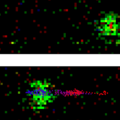
In preparation for cell division, cells need to copy (‘replicate’) the DNA that they contain. A team of researchers from TU Delft, collaborating with investigators from the Francis Crick Institute in London, has now shown that the protein building blocks involved in the initial steps of DNA replication are mobile but reduce their speed at specific DNA sequences on the genome. Their findings, which will be published on 26 March in the open-access journal Nature Communications, were facilitated using an integrated approach involving biophysics and biochemistry that will propel new discoveries in the field.
18 March 2021
Faculty of Applied Sciences attracts four new Marie Curie Fellows
The Faculty of Applied Sciences has attracted four talented international researchers through the Marie Skłodowska-Curie Actions Individual Fellowships programme of the European Union. The new Fellows are: Anders Barth (Bionanoscience), Baptiste Heiles (Imaging Physics), Josep Ingla-Aynés (Quantum Nanoscience) and José Palomo Jiménez (Chemical Engineering).
08 March 2021
New test makes detection of genetic material visible to the naked eye
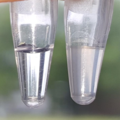
Onderzoekers van de TU Delft hebben een test ontwikkeld waarmee ze specifieke stukjes genetisch materiaal kunnen opsporen, waarna de uitslag met het blote oog af te lezen is. Met de test kunnen onder meer virussen, zoals het coronavirus, en antibioticaresistente bacteriën snel en goedkoop worden gedetecteerd. De resultaten zijn gepubliceerd in Biophysical Journal.
15 December 2020
Five 20k grants for cross-campus bioengineering research projects
01 December 2020
Best Bioengineering MSc Graduate 2020: Nemo Andrea!
26 November 2020
Marie-Eve Aubin-Tam wins Waterman Award
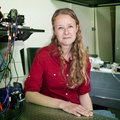
Researcher Marie-Eve Aubin-Tam of the Bionanoscience department has won this year's H.I. Waterman Sustainability Award. The head of the department of Bionanoscience, Marileen Dogterom, virtually presented the award to her during an online meeting on Thursday 26 November.
16 July 2020
Charting the way to minimal cells
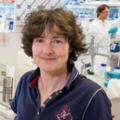
Ironically, the closer we get to building a living cell, the less we are able to understand it. During the three-day virtual workshop “Reconstituting biology - charting the way to minimal cells”, cell-building researchers agreed this complexity is what makes cells so interesting.
19 June 2020
Spinoza Prize for Nynke Dekker

NWO has announced that TU Delft's Nynke Dekker has been awarded an NWO Spinoza Prize. The Spinoza and Stevin Prizes are the most prestigious awards in Dutch science. Besides Nynke Dekker, prizes were also awarded to prof. dr. ir. Jan van Hest (TUE), prof. dr. Pauline Kleingeld (RUG) and prof. dr. Sjaak Neefjes (LUMC/UL). Prof. dr. Linda Steg (RUG) en prof. dr. Ton Schumacher (AVL/LUMC/UL) have been awarded a Stevinprize. Each of the laureates will receive 2.5 million euros to spend on scientific research and related activities.
02 April 2020
The strength of collagen
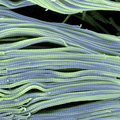
Collagen is the glue that holds our bodies together. It can be found in our skin, bones, muscles, cartilage, ligaments, hair, nails - in short, in almost every tissue in our body. In some places, for example in the skin, collagen proteins form networks that are very elastic. But why these networks are so elastic has so far been unclear. Researchers from Delft University of Technology, AMOLF and Wageningen University & Research have now discovered that the number of 'intersections' plays an important role. Between three and four connections per intersection is ideal. In fact, more connections makes the collagen networks less elastic. The new insights can be used, among other things, to repair damaged or aged tissue, such as cartilage or skin, and to grow new skin tissue for burn victims.
04 March 2020
Zigzag DNA
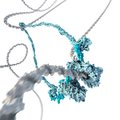
DNA in a cell can normally be compared to spaghetti on one’s plate: a large tangle of strands. To be able to divide DNA neatly between the two daughter cells during cell division, the cell organises this tangle into tightly packed chromosomes. A protein complex called condensin has been known to play a key role in this process, but biologists had no idea exactly how this worked. Until February 2018, when scientists from the Kavli Institute at Delft University of Technology, together with colleagues from EMBL Heidelberg, showed in real time how a condensin protein extrudes a loop in the DNA. Now, follow-up research by the same research groups shows that simple bundling up such loops is by no means the only way condensin packs up DNA. The researchers discovered an entirely new loop structure, which they call the 'Z loop'. They publish this new phenomenon in Nature on 4 March, where they show, for the first time, how condensins mutually interact to fold DNA into a zigzag structure.